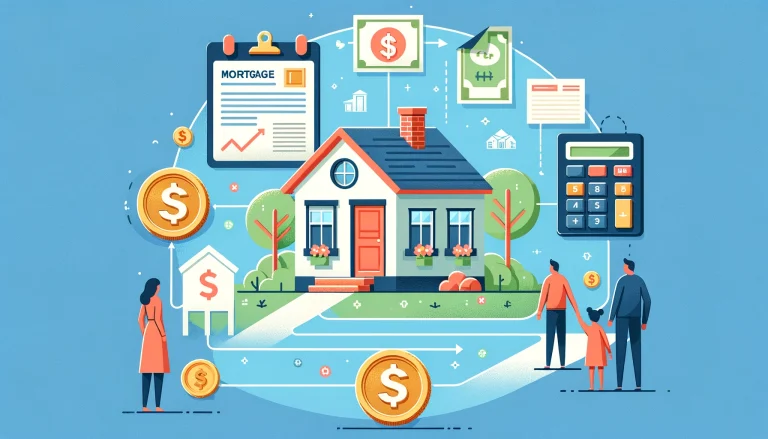Every day, knowing how to save money is becoming more important.
It’s crucial to have funds set aside in case of emergencies. Even better, extra cash could help you reach your financial goals.
However, you may find it difficult because of student loans and other debts. You may not be earning much lately, or you may have been let off work.
Well, you could still build savings by following our money-saving tips. With discipline and perseverance, you too can manage your finances!
Cancel Subscriptions

Are you binging shows from multiple streaming services? Your numerous online subscriptions could be keeping you from saving money.
If you’re guilty of having several subscriptions, don’t worry. Most people are easily tempted by the allure of easy online shopping and other online distractions.
Unsurprisingly, reduced spending is one of the main steps on how to save money. This allows you to focus your funds on savings and more important stuff.
Check your inbox for all the services you’re currently paying monthly. Compile them on a list, and highlight the ones that you can do without.
Include every subscription, such as newsletters, podcasts, and ebooks. You might find several ones that you randomly clicked or tapped.
Each subscription might not cost much, but they could be massive when combined. With those out of the way, their monthly payments could now go to savings!
Stick to a Budget
A budget is the number one mantra of every financial advisor, and for a good reason.
It’s a crucial tenet on how to save money since it directs savings goals. Planning a budget means being intentional, setting an endgame for your reserve funds.
A budget is a means to an end, so make that “end” clear. It could be short-term or long-term, but your goal should be as detailed as possible.
For example, you could be saving up to buy that latest gaming console next month. In contrast, the budget could safeguard your future by building your emergency fund.
Setting goals sound simple, right? Planning the budget around them is typically one of the challenging steps in saving money.
It can be daunting for some so that you could follow tried-and-tested budgeting methods like the 50-30-20 rule.
This technique allocates half your earnings for necessities. Then, 20% is set aside for debts, and you can use the remaining 30% for anything you like.
Ironically, this strategy allows for impulse purchases to help you stay committed to the budget. Think of it as a cheat day for most diets. You need to let loose for a while, so you’re motivated to continue.
On the other hand, you could follow the 30-day rule if you’re an avid spender. This method on how to save money could discipline your money management.
It involves delaying a costly purchase for 30 days. Afterward, you should decide whether or not to buy that item.
Usually, people buy stuff due to FOMO (Fear Of Missing Out) or limited promos. For instance, many people want the latest smartphone and camp around stores during Black Friday.
The month-long delay relieves these immediate desires, so you can logically decide on purchases. In turn, you could avoid blowing cash on unnecessary products and services.
Use a Savings App

Nowadays, there truly is a smartphone app for everything.
For example, more people are online shopping for all their needs and wants. You don’t even have to frequent the grocery store anymore!
The ways on how to save money perpetually expand because of new tools. You can find budgeting and savings apps that aid in managing your finances.
Some apps provide a template that helps you organize your finances. Free options could handle most of your needs, but you could get paid alternatives if you need more features.
Currently, major banks have their smartphone apps. Check if your bank has one, and inquire about their other money management services.
They probably have high-yield savings accounts or other helpful options. Due to continuous innovations, there’s always a new way on how to save money!
Set Up Automatic Savings
Banking apps can automatically move funds from your bank account to savings.
Some even allow you to set automatic transfers for every deposit you make. For example, an app could take $100 from your $1000 deposit then set it aside for savings.
It’s convenient if you maintain a hectic daily routine. Fortunately, your app could be putting money into savings for you while you handle more pressing matters.
Again, we remind you to always look for new ways on how to save money. Update yourself with your bank’s latest offerings, and always check free financial tips online.
The world constantly churns out innovations for everything, so you should always be on the lookout.
Have a Limit on Your Credit Card

Did you know that US credit card debt has gone past $1 trillion in 2019?
Unfortunately, many Americans have overwhelmed themselves with debt. They have trouble keeping up with the interest rates, and they’re stuck in a repayment cycle.
Consequently, controlling credit card debt is part of learning how to save money.
It can be tempting to spend above your means using your plastic swipers. Naturally, you should minimize your credit card use to avoid accruing loads of debt.
Even better, most banks could limit your credit card, making it easier to minimize spending. Ask your preferred bank for credit card limits and similar services.
If they have a smartphone app, this could allow you to access this feature. Also, it enables you to monitor your spending in real-time to adjust your spending immediately.
Start Selling Unused Items
After following the steps on how to save money, you could still be struggling with finances.
Maybe you’ve been fired or furloughed, but the payment dues keep drawing closer. Due to the current economy, it may be difficult to find employment opportunities.
Moreover, you don’t buy useless items, keep a budget, and follow other financial advice. Yet, you still have no extra cash for your emergency fund.
Well, you could look around your home for any solutions. If you see lots of knick-knacks just collecting dust, those could help you build savings.
Gather those items in one place and check which ones are still in good condition. Then, you could hold a garage sale to sell those items.
This method on how to save money could turn your unused stuff into extra income. As a result, it could also declutter your home.
Even better, you could use websites like Etsy and eBay to reach potential customers outside your neighborhood. Your friends on Twitter and Facebook may also be willing to pay for your stuff.
Selling items just lying around your place could turn clutter into more savings!
Final Thoughts
Whether you want to save for retirement or a new truck, savings are always important.
We’ve detailed several ways on how to save money in your checking account. However, there are other methods aside from what we’ve discussed.
For example, you could swap your old lightbulbs with LEDs. These are energy-efficient alternatives with the same brightness that could lower your electricity bill.
There’s always room for improvement, even in personal finance. You could check out our other articles to learn more about how to save money!
How to Save Money FAQs
How can I save money if I don’t have a lot?
You could reduce your expenses by avoiding unnecessary purchases. Also, you may replace your appliances or groceries with more affordable alternatives. You could also sell unused stuff around the house.
What is the best way to save money?
You could start saving money by following a budget. Moreover, you may follow budgeting methods such as the 50-30-20 rule and the 30-day rule.
What is the 30-day rule?
It involves delaying a major purchase for 30 days. Once this period has elapsed, you should then decide whether to continue the purchase or not.
How do I stop spending money?
Refrain from using credit cards excessively and adhere closely to a budget plan. These methods prevent impulse purchases and direct your funds to more important expenditures.
What’s the 50-30-20 budget rule?
This budgeting rule designates half of your earnings for necessities. The 20% should cover debts, and the remaining 30% is for stuff you like.












